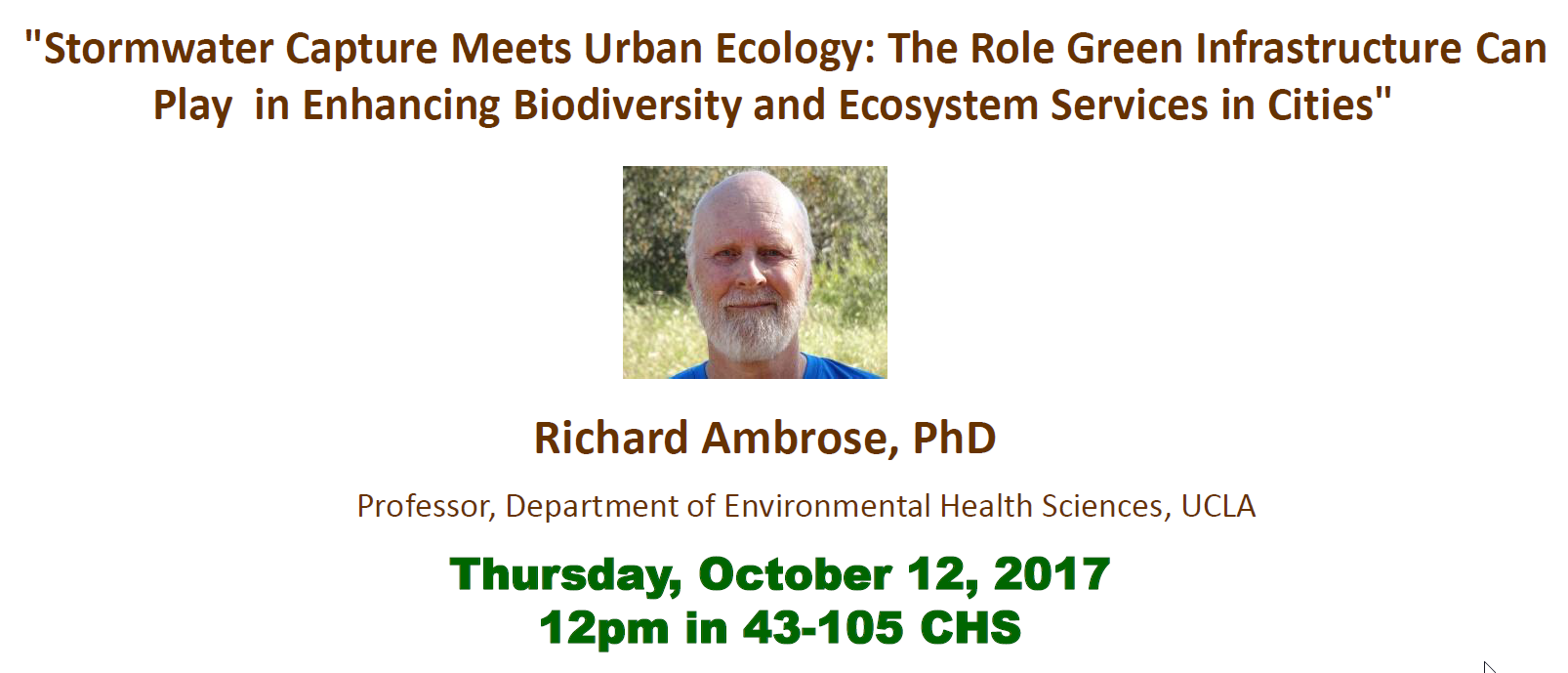October 11, 2017
10:00pm – 11:00pm
43-105 CHS (Center for Health Sciences)
About the lecture: A variety of stormwater Best Management Practices (BMPs) are being deployed extensively in urban areas to reduce the negative effects of stormwater runoff. The design of these BMPs focus on capturing and treating stormwater, but some types of BMPs provide important co-benefits that are rarely recognized. Stormwater green infrastructure, such as green roofs and biofilters, provide ecosystem services and ecological values not found in other types of BMPs. Many of these services, such as carbon sequestration, temperature moderation, air quality improvement, and aesthetics and other cultural services, provide valuable benefits to human health and well-being. In this talk, I will discuss some of the ecosystem services stormwater green infrastructure can provide as well as how they can support urban biodiversity. I will present initial results from our studies of biofilters in southern California and Melbourne, Australia. Improved understanding of the factors influencing the ecosystem services or ecological values provided by natural treatment systems could lead to better designs that maximize these co-benefits along with stormwater functions. Although individual stormwater biofilters are often small, effective urban stormwater management will require an extensive network of BMPs, so collectively they can make a significant contribution to urban ecology.
About the speaker: Richard F. Ambrose has been Professor in the Department of Environmental Health Sciences and the Institute of the Environment and Sustainability at UCLA since 1992. He teaches graduate courses covering environmental assessment, restoration ecology, conservation biology, the ecological effects of climate change, environmental health, and ecotoxicology. His research generally addresses human effects on natural or urban ecosystems, including the restoration of degraded coastal habitats, especially wetlands; evaluating the effectiveness of wetland mitigation programs; monitoring change in rocky intertidal habitats using a network of monitoring sites throughout California; evaluating alternatives for managing watershed-level ecological problems resulting from urbanization; evaluating climate change relate to coastal habitats, incluing projected changes in vegetation, carbon sequestration in coastal wetlands as a means for mitigating greenhouse gas emissions, and climate change adaptation strategies; and urban ecology, especially the ecological aspects of green infrastructure used to capture and treat stormwater and other urban runoff. He has served on scientific advisory panels for many organizations, including the California Coastal Commission, Santa Monica Bay Restoration Commission, California Ocean Protection Council, U.S. Army Corps of Engineers, and the Southern California Wetland Recovery Project, and has provided advice about environmental restoration issues to a wide variety of government and private organizations.
For more information please contact Rebecca Greenberg at rgreenberg@ph.ucla.edu or at (310) 206-1619

